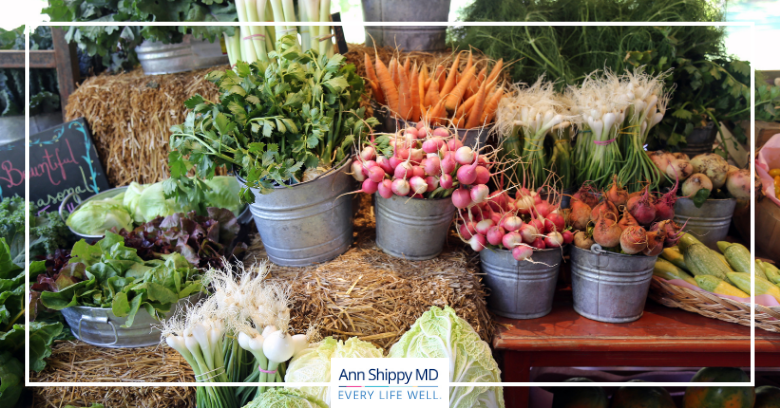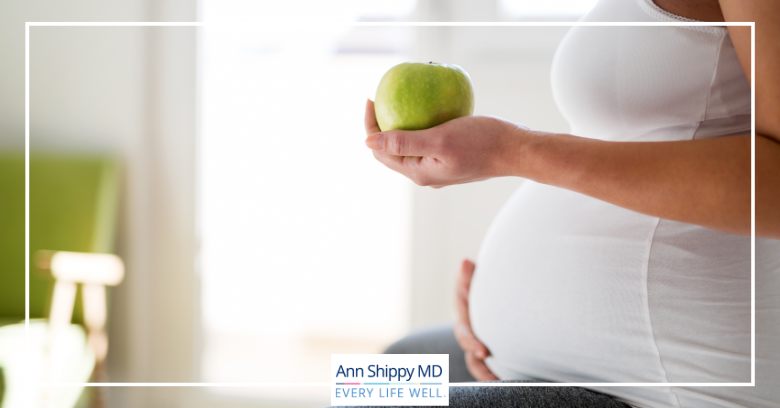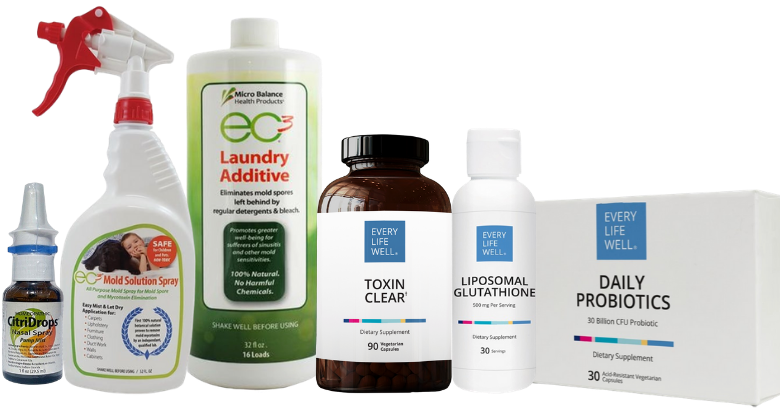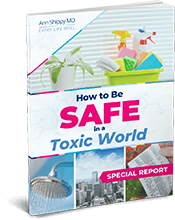Is Organic Worth The Cost?
I was at the supermarket the other day and noticed that organic cherries were $8.99 per pound, while the conventional ones were only $5.99. I realized that many people would be tempted to buy the convention cherries and that it is important to know why organic is a better choice.
I often hear that organic food is elitist and only available to those who have privilege and higher incomes. I’m aware that many people don’t have the luxury to consider $8.99 cherries, but because of the true impact organics have on our health it’s critical to understand the options are available.
Meaning, there are still many ways to incorporate organics – and all their benefits – into the diet.
As importantly, I want you to understand that it’s not just about money you are spending upfront but the cost of health you are preserving for your future when you choose organic where possible. There are also planetary costs involved when choosing the conventional options so if we are able to focus our budget on organics as much as possible (and that will be different for each of us), we can protect Earth for future generations as well. When human health intersects with planetary health, resiliency is optimized!
For more on this, see the discussion on ecopsychology
A diet consisting of whole foods is incredibly important for health, longevity and even reversing chronic disease, and although it may seem unapproachable, I want to talk about simple shifts and ways to incorporate more higher quality food, including organic foods into your routine.
In this article, you will learn more about:
- What does the organic label mean?
- The benefits of organic food
- The hidden costs of food production
- 9 ways to eat organic on a budget
What Is Organic?
Organic means that a food was grown with natural methods and without the use of chemical herbicides (like glyphosate), pesticides, antibiotics, growth hormones or genetically modified seeds or feed.
If you look back in history 60-70 years ago, all food was grown organically and it’s only been more recently with the modernization and industrialization of agriculture that non-organic methods have become the norm. The organic movement is really a return to simpler times and ways of growing food that align with nature and human health instead of harming both. After all, what’s good for the planet is good for your health.
Organic foods must meet the US Department of Agriculture guidelines for how crops are grown, animals raised and for food processing in order to carry the organic seal or use the word organic on a label.
When it comes to organic labeling, there is a lot of confusion and organic standards have changed over the years. When you look at a food or food product, here are some labels that you will see, and what the labels mean:
- “100% Organic” – this is used for whole foods that only have 1 ingredient, such as whole grains, beans, fruits and vegetables. It is also used for food products where every single ingredient is certified organic.
- “Organic” – A food product can be labeled organic if 95 percent of the ingredients are certified organic.
- “Made with organic ______” This label is used when a food product contains an organic ingredient.
- Organic can also be listed on the ingredient list to specify an organic ingredient.
In this system, there are also exemptions for non-organic ingredients so it becomes a little tricky for consumers to navigate, especially when you find food products with long lists of ingredients.
There is also a cost to the farmer or producer for the certification process and maintaining that certification, so it becomes easier for larger scale farms to become organic while the cost is a barrier for smaller farms. Personally, I think the farms that use the toxic chemicals should have to carry the burden of the extra cost!
Benefits Of Organic Food
We know there is a consumer cost associated with organic foods, and it’s only human to wonder if it is really worth the cost in terms of health? If you have found yourself asking if organic food is legitimately healthier I understand.
There have been a lot of studies over the last 10 years looking into this exact question by comparing organic to conventionally raised foods in terms of both nutrition and toxins they contain.
I remember seeing a study in 2008 that showed that organic broccoli has higher levels of vitamin C than its conventional counterpart.
Vitamin C is an important antioxidant, not only for you, but also for the plant. Natural growing conditions, without the use of chemicals, expose plants to pests and pathogens.
Plants then respond by increasing antioxidants for protection. This means that more nutrition is passed on to you when you choose the organic broccoli versus the conventional. The organic version is more resilient because of this nutrient density and when you eat it, so are you!
Another study looking at broccoli, this one from 2013, showed that organic broccoli maintained these higher concentrations of antioxidants, including vitamin C and polyphenols with storage than the conventionally grown broccoli. A 2017 study compared the nutrition of fermented cabbage, sauerkraut, between organic and conventional.
This study found that the organic sauerkraut juice contains more antioxidants – polyphenols and flavonoids – than the conventional. And more studies, looking at a variety of crops, confirm these results.
It makes sense to me that more nutrition combined with less exposure to toxins would lead to health benefits and the research is supportive of this idea. One study states, “organic agriculture seems to contribute to maintaining an optimal health status and decreases the risk of developing chronic disease.”
In a French population study, researchers found that those who consumed the most organic food had the least risk of developing cancer.
And in another study using the same data, those with a higher consumption of organic food had a lower risk of metabolic syndrome. Nutrients are critical for life and clearly organic food seems to contain more nutrition than its counterpart.
Hidden Costs Of Conventional Food
Although organic food might be more expensive at the point of sale, understand that many of the true costs to conventionally grown and raised food are not passed directly on to the consumer.
Instead we all pay for these costs through our taxes, our health, the health of the environment and we also pass many of the costs on to future generations.
Hidden costs include:
- Health effects to farm workers from chemical exposure
- Worker’s rights violations that affect migrant farm workers, those who work in slaughterhouses and more
- The environmental costs associated with water and air pollution
- The health costs of being exposed to glyphosate that disrupts the microbiome, contributing to chronic disease and autoimmunity
- The government subsidizes much of the production of corn, soy and other crops so we end up paying for this agricultural model that way
The bottom line is that cheap food isn’t really cheap. Can we really afford to not think about soil health and all of the larger issues when it comes to choosing what we put on our plate? While I started writing about if we can afford to eat organic, I’m now questioning if we can afford not to.
How To Eat Organic On A Budget
I believe that taking small steps toward organic has a big impact. If you can’t realistically shift your budget to fully prioritize an organic diet, taking small steps when and where you can will also provide benefits. Here are some budget friendly ways to increase the organic foods you eat:
1. Choose whole foods. When it comes to organics, go for the whole fruits, veggies, olive oil and eggs instead of packaged or processed specialty organic products. These foods will get you back into the kitchen, cooking more and save your food budget.
2. Prioritize organic animal products. Toxins in the environment are often fat-soluble and will accumulate through the food chain. This means you may get more exposure from meat and other animal products vs. veggies. Shift your food budget to prioritize grass-fed or regenerative animal foods, even if you can’t afford organic plant foods all of the time.
- Shop seasonally. Stock up on in-season organic foods when they are both fresher and more affordable. Preserve food by freezing, fermenting or canning.
- Shop locally. Check out local farmer’s markets, farm stands and direct-to-consumer farms. Local food is often cheaper than food that has traveled long distances to get to your plate.
- Talk to your farmer. When you have a conversation with a farmer or grower, you might find that they are using organic methods, or even methods that go beyond organic, even if their food doesn’t carry a certified organic label.
3. Buy in bulk. Those $8.99 per pound cherries are probably a lot cheaper if you buy 10 pounds from a local producer or even visit a u-pick cherry farm. Buying in bulk and in season from local producers is a great way to have your favorite foods throughout the year with a one-time investment.
4. Use the dirty dozen list. Each year the Environmental Working Group (EWG) independently tests popular produce for pesticide residues. Those with the highest levels – the dirty dozen – can be prioritized in terms of organic. Those with the lowest residues are not as critical to buy organic. Here is EWGs lists for 2020:
Dirty Dozen
- Strawberries
- Spinach
- Kale
- Nectarines
- Apples
- Grapes
- Peaches
- Cherries
- Pears
- Tomatoes
- Celery
- Potatoes
Clean 15
- Avocados
- Sweet Corn
- Pineapple
- Onions
- Papaya
- Sweet frozen peas
- Eggplant
- Asparagus
- Cauliflower
- Cantaloupe
- Broccoli
- Mushrooms
- Cabbage
- Honeydew melon
- Kiwi
5. Rethink your budget. Take a look at your monthly spending and decide if there is something you can let go of in order to make more room for quality food and invest in your health. Perhaps you have a TV subscription you don’t use or can renegotiate insurance rates.
6. Strive for progress, not perfection. Remember that every small choice you make to upgrade your food quality adds up over time, by providing more nutrition to your body and reducing your body burden of toxins. Instead of trying to be 100% organic, try choosing one or two new organic items this week and expanding from there.
7. Shop the freezer. Frozen fruits and vegetables are as nutrient dense as fresh. The major difference is price. You can make delicious, healthy, nutrient dense and budget friendly meals all from frozen produce so don’t underutilize the frozen section next time you shop.
In the United States we have a cultural perception that food needs to be fast and cheap. We spend a lot less of our incomes on food when compared to other countries and one reason for this is that we aren’t paying the true cost of food.
Each of us will have to decide about our personal priorities and budgets when it comes to food choices and organics, but using some of these tips will help to make eating organic more accessible and affordable.
References













